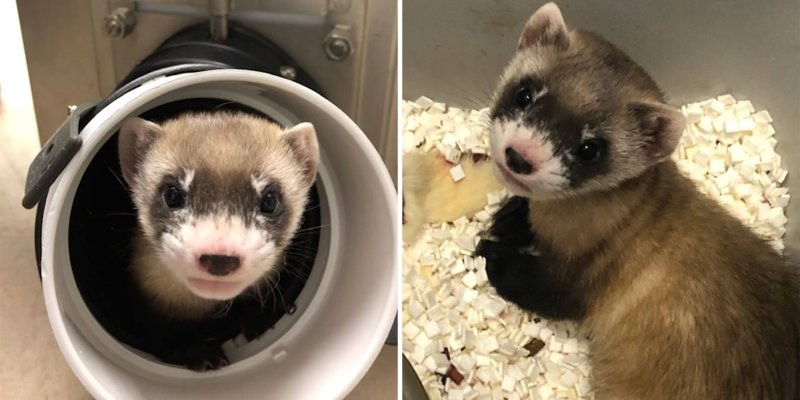Elizabeth Ann had just turned 21 days old — surely a milestone for any ferret but a particularly meaningful one for Elizabeth Ann, the first of any native, endangered animal species in North America to be cloned.
…
Her successful cloning is the culmination of a yearslong collaboration with the U.S. Fish and Wildlife Service, Revive & Restore, the for-profit company ViaGen Pets & Equine, San Diego Zoo Global and the Association of Zoos and Aquariums.
Cloned siblings are on the way, and potential (cloned) mates are already being lined up. If successful, the project could bring needed genetic diversity to the endangered species. And it marks another promising advance in the wider effort to use cloning to retrieve an ever-growing number of species from the brink of extinction.
The black-footed ferret, the first species to be reintroduced to former habitats with the help of artificial insemination, has long been a model species for new conservation technologies. So it is fitting that the ferrets have become the second species to be cloned for this type of genetic rescue.
“Pinch me,” joked Oliver Ryder, the director of conservation genetics at San Diego Zoo Global, over a Zoom call. “The cells of this animal banked in 1988 have become an animal.”































